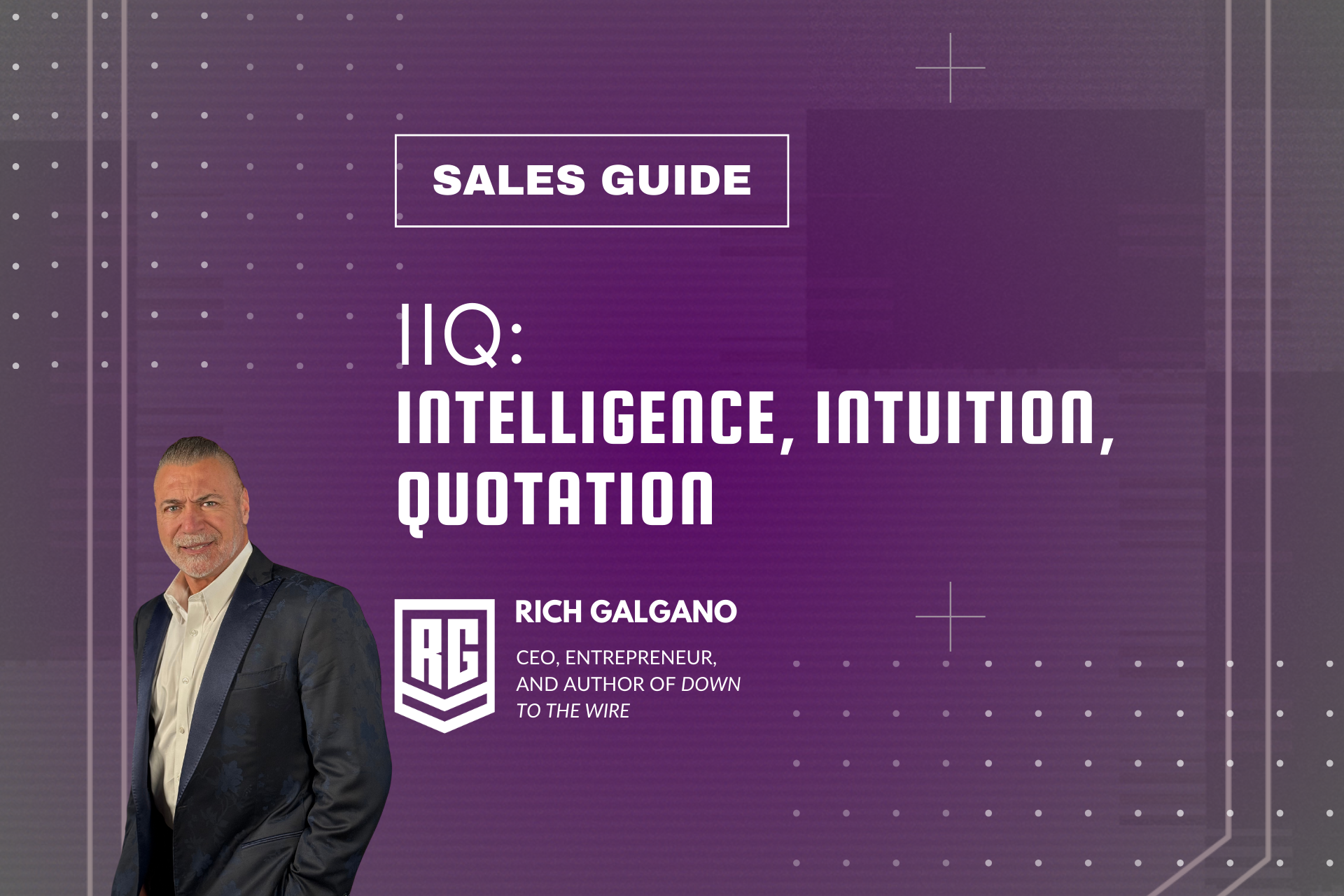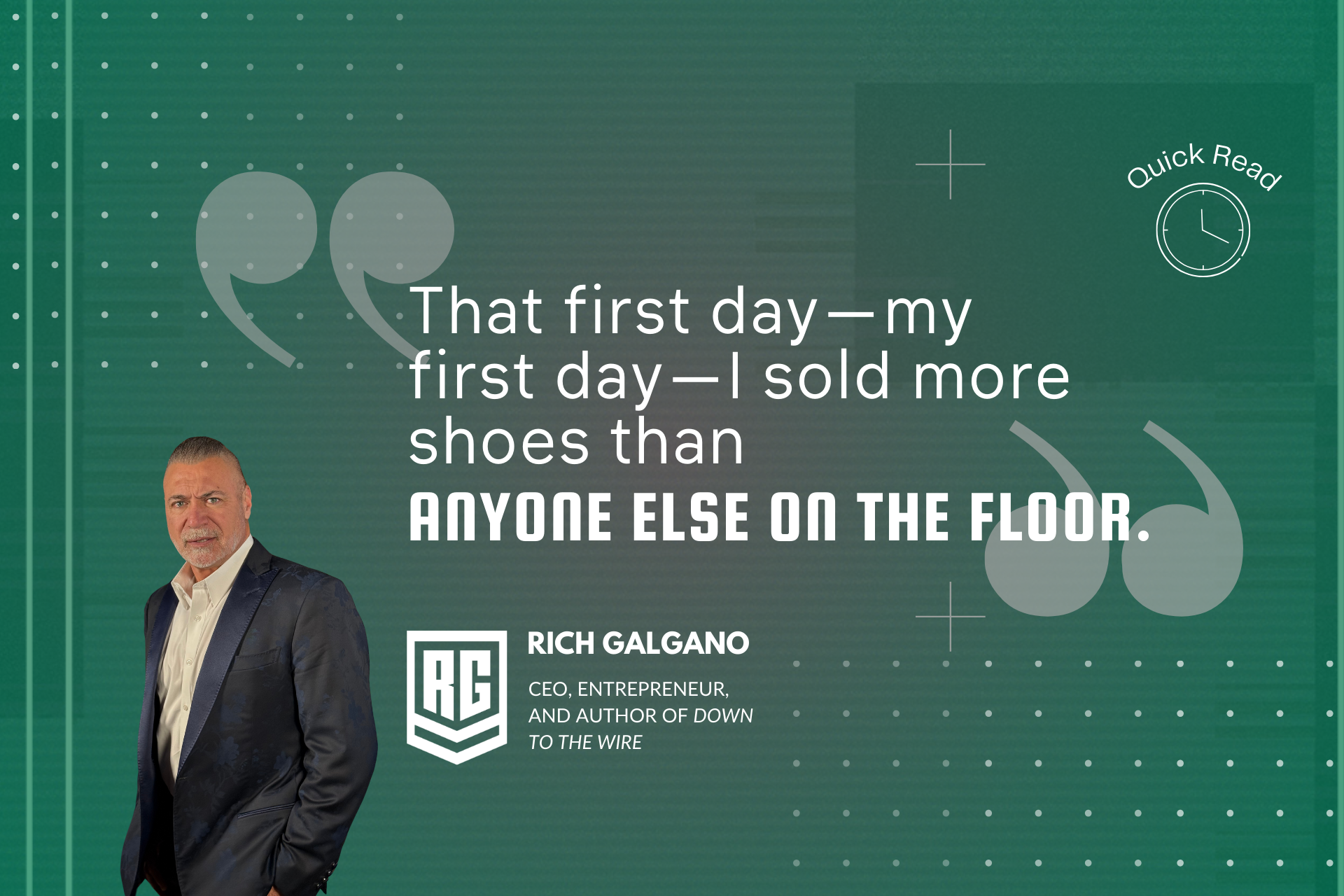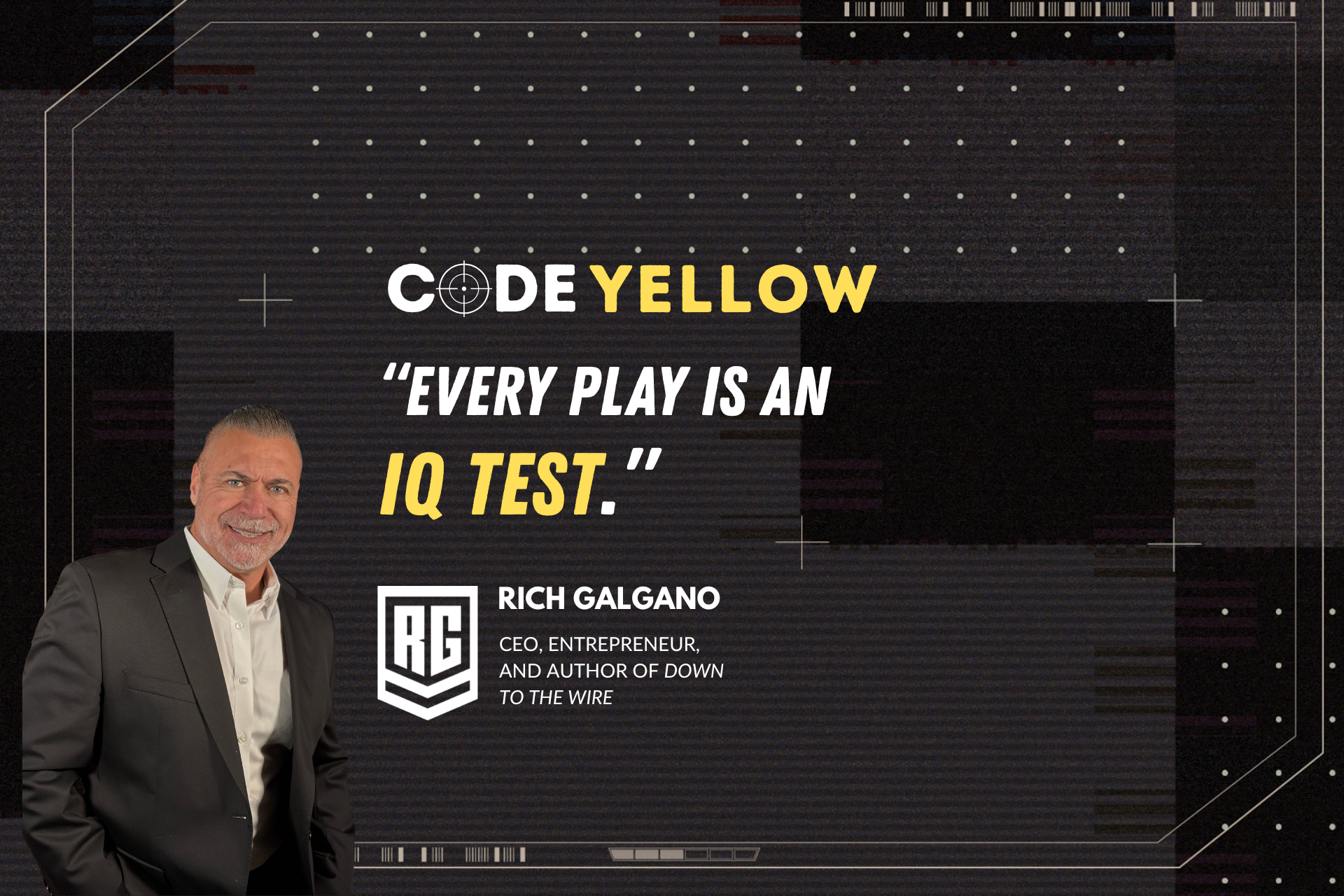The Sale That Never Happened: How a Lack of Awareness Lost the Deal
By Rich Galgano
March 17, 2025
In this episode of My Two Cents, I recount a sales interaction that started off promising—I truly believed the woman I was dealing with was situationally aware. But just as she had me on the hook, she made a fatal mistake: she started telling me what to do, completely losing all awareness in the process. The deal was dead on the spot. If she had followed my Doctrine of Code Yellow, the outcome could have been very different. Tune in to hear how a single misstep can cost you a sale—and how staying aware can make all the difference.
Have a topic you'd like me to cover? Head over to the video on YouTube and drop a comment! And while you're there, be sure to like, subscribe, and turn on notifications so you never miss an episode.

Code Yellow is a critical thinking system built for high-stakes communication and decision-making. It lives in sales, but it applies anywhere clear thinking matters. It starts with situational awareness —being fully locked in to what’s happening around you and what needs to happen next. No guessing. No assumptions. Just clarity, earned through preparation.

In business, just like in life, every conversation we have, every question we ask, every statement we make, is a move—a play. Each of these plays serves as an IQ test. I'm not talking about your standard intelligence quotient here; I'm referring to something broader and more practical—Intelligence, Intuition, Quotation. It's a simple concept but packs a lot of punch. Let's break it down.

I didn’t get into sales because I read a book or watched a YouTube guru. I got into sales because on day one, at my first job, I paid attention to what mattered. That job? Foot Locker. I’m a teenager. Just a kid sent to work in the back, stocking shoes. It’s Saturday morning, store’s packed, and I’m in the back doing what I was told—stacking boxes, putting away sizes nobody asked for. All of a sudden, the manager, Steve, walks in, he looks at me and says, “Can you sell shoes?” Now, what kind of question is that? I don’t know if I can sell shoes—I’ve never done it. But I sure as hell know I can figure things out. So I step out onto the floor. I look around. Chaos. Parents, kids, teenagers—everyone grabbing shoes off the walls like it's Black Friday. Then I see it. A woman. Standing there with a shoe in her hand. She’s holding it up in the air like she’s raising a flag. What the fuck do you think that means? She needs help. Nobody had to explain that to me. Nobody handed me a training manual. I didn’t have a playbook or a headset whispering directions in my ear. I saw a customer. I saw a need. I went. That’s instinct.

If there’s one thing you need to understand about winning—whether in sports, business, or life—it’s this: Every play is an IQ test. Every decision you make is either an asset or a liability. You’re either processing real-time information and executing with precision, or you’re getting steamrolled by someone who is. The difference between a good player and a great one isn’t talent alone—it’s how fast they process the game. The best don’t react—they anticipate, position, and attack. And that’s exactly how you need to operate in sales, leadership, and competition. Let’s break this down sport by sport, play by play, so you understand exactly how to think ahead and make winning decisions in real time.

Zelensky played his hand, and he played it wrong. In this episode of My Two Cents, I break down exactly who Zelensky tried to appease, what critical errors he made, when he lost control of the situation, where he should have taken a different approach, why his strategy completely backfired, and how his mistakes could reshape Ukraine's future. This isn’t just about politics—it’s a masterclass in failed leadership. Let’s get into it.

Sales isn’t about having the best pitch or the best product. It’s about how you frame the conversation. Because the reality is this—it’s not what you say, it’s how you say it. What’s framing? It’s the ability to take one single idea and say it five different ways until you land on the one way that gets the response you want. ✔ It’s not just about asking questions. It’s how you ask them. ✔ It’s not about selling a solution. It’s how you present it. ✔ It’s not about being right. It’s about making them feel like they made the right choice.

Welcome to My Two Cents—a brand-new segment where I share my thoughts, insights, and no-nonsense advice on sales, business, life, and everything in between. In each episode, I'll be breaking down real-world experiences, lessons learned, and practical tips to help you navigate challenges, seize opportunities, and level up in whatever you do. No fluff, just straight talk.

Being good at sales often starts with mastering the basics—understanding the people you’re dealing with, the environment you’re operating in, and how to position yourself to succeed. That’s where the Code Yellow mindset can be helpful. By focusing on six key questions—Who, What, When, Where, Why, and How—you can develop a more systematic approach to sales that may improve your results.



